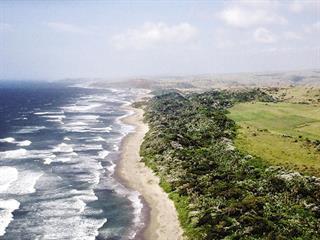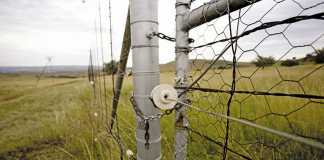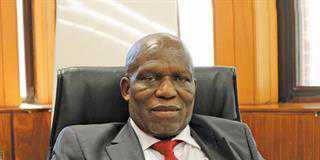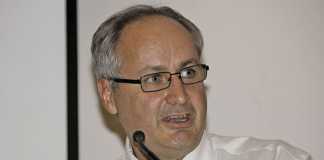
How long have you been farming your land?
I was born in the village of Bizana Mbongweni, in the northern part of Eastern Pondoland and my family has been farming this land since 1945. I don’t know the exact size of the farm, but I do know that it produces enough to provide my family and friends with maize, vegetables, and chickens all year round, as well as vegetables and fruit to sell.
There’s a vegetable garden, fields for mealies, yams and sweet potatoes, and we also grow guavas, oranges, bananas, lemons, peaches, grapefruit and avocados.
If Australian-owned Transworld Energy Minerals is granted a licence, they’ll mine heavy minerals from the dunes near Xolobeni. How will this affect you?
The mine will be 7,3km from my homestead.We have so many natural disasters in the world as it is, why must we invite another disaster into a South African paradise? Mining will industrialise and urbanise Pondoland and ruin the social fabric of our communities.
It will destroy the environment as well as the natural beauty of the land. The area should be preserved as a national heritage site. It is not to be given out to capitalist vultures driven by greed. We have our own “gold” in the area: amadumbe, sweet potatoes, fruits, and beans.
When the mine drew up a petition to support its activities, the signature of your deceased grandmother was one of those that were fraudulently signed. How do you feel about this?
I feel violated. My family values have been undermined. My grandmother would never have approved of this mine. The whole issue makes me sick.
What do you think about the government’s handling of this issue?
Government is not acting in the best interest of the poor. Government should respect the voice of the people and act upon it. We have a right to a safe and clean environment, to human dignity, and a right to participate and make our own decisions. It is government’s duty to uphold these rights.
Are the majority of the community against the mine?
Local inhabitants are divided, as mining is a very controversial issue. They are being lied to about the implications. They are promised jobs – but what jobs and how many people will be employed? What is the socio-economic and environmental impact of the mine on existing sustainable livelihoods?
How would you like to see government create jobs?
There are many better ways to create jobs than through mining. Very few people will benefit from the mine – unlike the sustainable farming, eco-tourism, and fishing which is currently going on. Government must find ways to strengthen existing economic segments through a people-centred approach to development.
The department of rural development must be visible to us and be proactive. Government must provide infrastructure and basic services to people. It must give us a chance to own small, communal, environmentally-friendly factories processing dairy, seafood, and fruit juices. That’s what we’d like to see.
Do you see organic farming playing a role in job creation?
I’m passionate about organic farming, because it’s socially and economically viable. It holds communities together and offers sustainable livelihoods. My goal is to forge networks with organisations who share similar interests and to convince the larger community that organic farming makes economic sense.
To do this, I need to find someone to certify our produce as organic, and to help us gain access to markets. We also need resources for rainwater harvesting in preparation for the winter season.
You are a founder member of Buyambo Food Security and Seed Bank Project. What does it do?
We practise different forms of organic farming and get training from organisations like Biowatch SA and The SA Freeze Alliance on Genetic Engineering (SAFeAGE). We own our traditional seeds and food sovereignty. We share or exchange seeds, share the harvest, and respect microorganisms.
What farming methods do you promote?
Traditional ways of cultivating and tilling the land. These include homemade composts like kraal manure from livestock and chickens, and old plant material. We also have a worm farm that provides vermicompost and worm tea. Organic farming offers many benefits like nutritious, healthy food – produced without chemicals – and a clean, safe environment.
You’re also passionate about education. Tell us about your work in this field.
In 2007, I joined the Nelson Mandela Institute for Education and Development, based at the University of Fort Hare. I coordinate the institute’s work in advancing education and rural development in the Mbizana area. It’s sometimes overwhelming, but education for liberation is in my blood.
Why do you say it is in your blood?
My grandfather, Robert “Smart” Mazeka was known as Titshala, which means “the educator”. In the early 1950s, there were no schools in the area and the children of school-going age were cattle herders. The chief agreed to let him open a school but he had to build the school and mobilise the community to send their children there.
After a hard day’s teaching at a school in the Lusikisiki district, he would bake mud bricks with the help of a few community members by the light of paraffin lamps. When classrooms for the foundation phase were finished, the school was officially opened and named after the chief of the area, Chief Baleni.
My grandfather never taught at the school but continued to nurture its development. Today, it serves children from Grade R to Grade 12.
- Contact Nobuntu Mazeka on 082 743 7932 or e-mail [email protected].
- Contact The Nelson Mandela Institute at 043 704 7245 or visit www.mandelainstitute.org.za.













